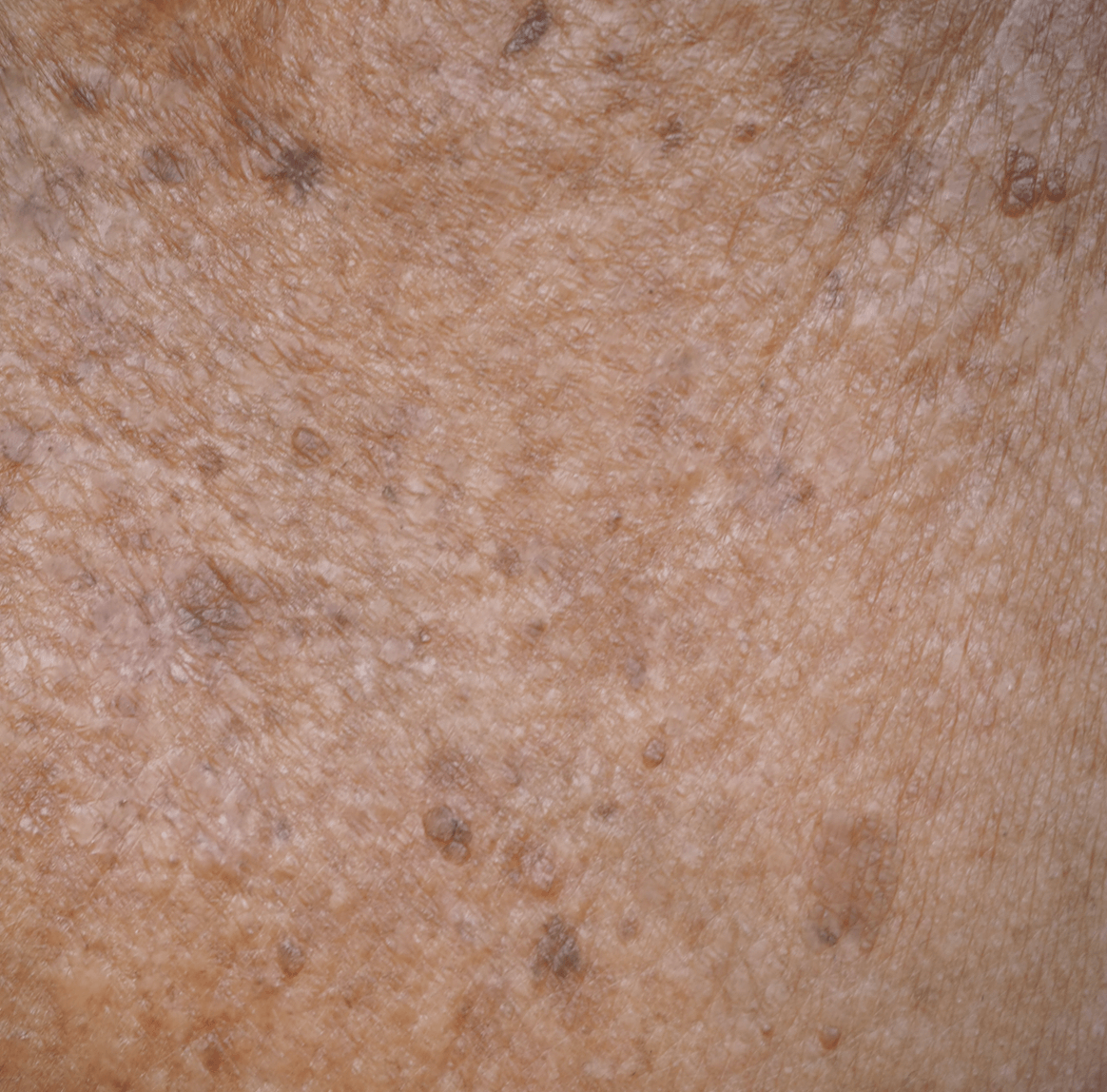Actinic keratosis
At Devonshire Dermatology, we are experts in diagnosing and treating actinic keratosis.
Actinic keratosis is one of the most common dermatologic conditions seen in adults. Actinic keratoses are caused by sun damage that accumulates over time. As such, they most commonly develop on sun exposed skin (scalp, face, hands). Often there will be multiple actinic keratoses developing in the same area. Actinic keratoses can be variable in appearance, but generally are small, red to pink, rough, scaley, and may be irritating. They are bumpy and often easier to feel than to see.
Actinic keratoses vary in appearance. Symptoms include:
– Rough, dry or scaly patch of skin
– Flat to slightly raised patch or bump on the top layer of skin
– In some cases, a hard, wartlike surface
– Colour variations, including pink, red or brown
– Itching, burning, bleeding or crusting
– New patches or bumps on sun-exposed areas of the head, neck, hands and forearms
An actinic keratosis is a precancerous lesion. If left untreated, Actinic keratoses have the potential to become a skin cancer (squamous cell carcinoma) in the future. Fortunately, there are multiple treatments available to treat these lesions.
Cryosurgery or freezing involved areas with liquid nitrogen is the usual treatment for patients with few lesions. For widespread actinic keratoses, we offer photodynamic therapy, a light-based treatment, to efficiently eradicate these potentially precancerous lesions. Other treatment options include topical chemotherapeutics and immunomodulators.
At Devonshire Dermatology, we are experts in diagnosing and treating actinic keratosis.


Consultation
- Detailed history of your skin concern
- Total skin examination
- Holistic assessment of your health
- Diagnosis
- Discussion of treatment options
- Personalised treatment plan
- Treatment
FAQs
Actinic keratosis is a pre-cancerous skin lesion on the skin. They are usually rough, scaly patches that form on the areas that receive extensive sun exposure: the face, lips, ears, backs of the hands, forearms, scalp, or neck. These growths develop slowly and don’t have any signs or symptoms other than their appearance. A small percentage of actinic keratoses can eventually become skin cancer.
See answer

These growths are not painful and are not overly disfiguring because they remain small. These are the signs:
- The rough, scaly, dry patch of skin
- Usually less than 1 inch in diameter
- Flat to slightly raised patch or bump atop the skin
- Sometimes can be hard and wart-like
- Color may be pink, red, or brown
- May itch or burn when brushed
See answer

These growths are “pre-cancerous,” meaning they are not cancer, but they may develop into skin cancer. If an actinic keratosis is left untreated it can turn into a squamous cell carcinoma. This happens in only 5 to 10 percent of cases of actinic keratoses, but it’s still wise to have the spot looked at by a dermatologist.
See answer

These growths are not painful and are not overly disfiguring because they remain small. These are the signs:
- Rough, scaly, dry patch of skin
- Usually less than 1 inch in diameter
- Flat to slightly raised patch or bump atop the skin
- Sometimes can be hard and wart-like
- Color may be pink, red, or brown
- May itch or burn when brushed
See answer

Actinic keratoses develop as the skin’s response to frequent or intense exposure to ultraviolet radiation from the sun or tanning beds.
See answer

Actinic keratoses develop due to exposure to UV radiation. But not everyone’s skin reacts the same way; one person may develop actinic keratosis, while another with the same exposure shows no signs. These are certain risk factors that make a person more likely to develop an actinic keratosis:
- You are over age 40
- Live in a sunny locale
- Have a history of sunburns
- Have red or blonde hair
- Have blue or light-coloured eyes
- Tend to freckle or burn when exposed to sunlight
- Have a personal history of actinic keratoses or skin cancer
- Have a weak immune system due to chemotherapy, AIDS, or other causes
See answer



